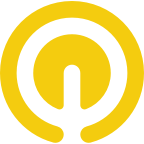Description
In this course, you will learn some medical interventions and skills to keep newborns healthy in the days and weeks after they have been born. We’ll tell you about medicines like Vitamin K and erythromycin and how they can prevent serious illnesses. We’ll also introduce screening tests like hearing screening and newborn blood screening that help to make sure that babies are set up for success right from the start. But we will start off by talking about jaundice, looking at the simple ways to identify and treat this common presentation and prevent any harm to babies.
A newborn baby is an amazing beautiful life filled with hope. There is so much that goes into making sure that babies are born healthy, and so much more to think about after they are born. Whether you are in the health care field, or even a parent, this course is the perfect educational opportunity for you to keep newborn babies healthy in the days and weeks after they are born!
What you will learn
Jaundice
Let’s start off talking about a common problem that can be easily identified and treated in newborns. And that is hyperbilirubinemia, which we see as jaundice, or yellow skin, in newborn babies. In this module, we’ll teach you how jaundice occurs and the skills needed to identify hyperbilirubinemia. We’ll finish by telling you the steps to take to lessen the chances of permanent brain damage caused by hyperbilirubinemia, which is called kernicterus.
Hearing and Screening
This module introduces you to the world of hearing and hearing loss, particularly in children. You will learn how hearing loss is classified, causes of hearing loss, implications of hearing loss, and why it is important to treat childhood hearing loss as soon as possible. We will explore the systems in place for identifying childhood hearing loss as early as possible, as well as the treatments available once it is detected.
Newborn screening
Everyone enjoys caring for newborns; they are adorable. There is a little more to newborn care than cuteness, though. Our job as clinicians caring for the newly born is to examine them carefully for illnesses that are not readily apparent. One important way in which we do this is with newborn screening tests. In this module, you will learn about the blood spot test. We will go over general concepts and give examples of each of the various types of diseases that it can detect.
Critical Congenital Heart Disease (CCHD)
Congenital heart diseases are some of them most common birth defects. They range from minor to life-threatening. The most concerning are the group known as “Critical Congenital Heart Diseases” because they require surgery by one month of age in order to avoid death. Pulse oximetry is a simple test that can be used to screen newborns for these serious heart defects, enabling us to identify them in the first days of life. In this module, you will learn how to perform this potentially life-saving screening test.






